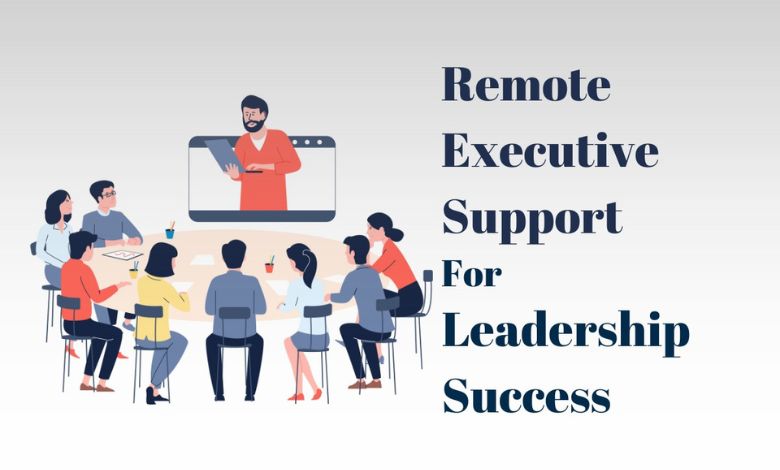Discover what negative peer pressure can lead to revenge dating and how it impacts your choices and well-being.
Negative peer pressure doesn’t just push us into harmless little compromises; it can lead to decisions that really affect our well-being.
One surprising example is something called revenge dating.
It might sound lighthearted, but it’s a real response to social pressures and emotional pain that can develop into unhealthy patterns.
This situation really shows how crucial emotional leadership is, helping ourselves and others deal with tough social dynamics.
So, let’s talk about what revenge dating is, how peer pressure influences it, and what it feels like.
I’ll share what I’ve learned and give you some practical tips to help you make choices that truly reflect what you want.
Article Breakdown
What is Negative Peer Pressure?

Peer pressure is a universal experience. Think about it: at some point, we’ve all been swayed by the people around us, whether it was jumping into a group activity we weren’t thrilled about or dressing a certain way to fit in. Negative peer pressure, however, is when this influence pushes us toward behaviors that don’t align with our values or goals. This can range from small things, like trying out a new look, to bigger choices, like revenge dating after a breakup.
Imagine a close friend saying, “You can do better!” or “You need to get back out there and show your ex what they’re missing.” It sounds like encouragement, but when it’s rooted in resentment or fueled by insecurity, it can tip into unhealthy territory. And when that outside voice drowns out your inner voice, it’s easy to lose sight of what you truly want.
How Peer Pressure Affects Us Beyond Our Teens
Despite common misconceptions, peer pressure does not diminish after graduating high school. Adults are subject to social influence just as much, if not more, as teens. From friends encouraging a “wild night out” to family questioning why you’re still single, these influences shape our actions.
Take my friend Kara, for instance. She went through a rough breakup and was heartbroken. Every time we’d meet up, our mutual friends kept nudging her, saying, “You need to date someone hotter. That’ll show him!” Gradually, the combination of peer pressure and her insecurities led her to engage in a string of fleeting relationships, leaving her feeling even more unfulfilled than she had been initially.
In Kara’s case, it wasn’t about love or connection; it was about proving a point, fulfilling a narrative imposed by others.
Takeaway: Peer pressure can skew our choices by amplifying our need for external validation. When this happens, we often make decisions that don’t actually align with our authentic selves, like dating for revenge.
What is Revenge Dating, Really?
Revenge dating is exactly what it sounds like: dating someone new, not out of genuine interest, but to provoke a reaction. It’s a coping mechanism that helps mask pain with temporary validation, often stemming from a need to “win” the breakup or show others (and ourselves) that we’re over it.
But why does this happen? When you combine a painful breakup with negative peer influence, you’re left with a recipe for reactionary decisions. Friends and family may cheer you on, saying things like, “Show them what they’re missing!” or “You deserve better!” These remarks may come from a place of love, but they can easily create a kind of pressure cooker.
If you’ve been through heartbreak, you probably know how it feels. Revenge dating can seem like a balm—a way to soothe your wounded pride. It’s enticing, especially when you feel low and crave reassurance. But here’s the reality: it rarely provides the comfort you seek.
Emotional Toll: The High Cost of Revenge Dating
At first, revenge dating can feel empowering. After all, it’s human to want to be seen, to feel valued. But the satisfaction is often short-lived. Relationships rooted in revenge lack the foundation of trust, connection, and genuine attraction that real relationships need to flourish.
Consider Kara again. In her whirlwind attempts to “move on,” she found herself feeling drained and emotionally distant. Instead of genuine joy, each new relationship left her feeling more frustrated and insecure, questioning why she still felt unfulfilled. In time, she realized she was still emotionally tethered to her past relationship and hadn’t allowed herself to heal.
Revenge dating can lead to a cycle of disappointment because it’s built on fleeting emotions rather than real compatibility. Instead of feeling valued, you might end up feeling disposable. And when the thrill fades, what’s left? Usually, an even bigger emotional void.
Practical Strategies to Resist Peer Pressure and Avoid Revenge Dating
Breaking free from the cycle of revenge dating is challenging, especially when you feel vulnerable. But with a few strategies, you can start making choices that genuinely support your growth and happiness:
1. Pause Before Acting
When you feel the urge to “show them” or “move on,” take a moment. Ask yourself: Is this really what I want? Or am I just responding to external pressures or past pain? This simple pause can make a world of difference in avoiding reactionary decisions.
2. Check Your Circle
Surround yourself with people who genuinely lift you up. Positive peer influence is powerful! Seek out friends who encourage you to focus on self-care and long-term happiness rather than quick fixes.
Think about the people around you. Do they bring out your best, or do they amplify your insecurities? As Kara’s friend, I eventually shifted my support from “You deserve better than him!” to “What do you need to feel whole again?” Sometimes, it’s as simple as hearing the right kind of encouragement.
3. Channel Your Energy Elsewhere
Revenge dating is often fueled by an excess of emotional energy that we don’t know where to direct. Try to pour this energy into self-improving activities that boost your confidence and well-being. Exercise, pick up a new hobby, or focus on personal goals that have meaning to you.
4. Reframe Your Narrative
Instead of thinking of your breakup as a failure or loss, try to reframe it as a chance to grow and discover what you truly want. This shift in mindset can make all the difference, transforming your need for revenge into a need for self-improvement.
5. Find Validation Within
This one is tough, but vital. Revenge dating is often a means of seeking validation. By practicing self-compassion and building self-worth independently, you’re less likely to rely on external approval. Start by doing things that make you feel good about yourself—independent of what anyone else thinks. Over time, this builds a strong foundation that peer pressure can’t easily shake.
Finding Your Way Forward: Healthy Alternatives to Revenge Dating
Moving past a breakup and resisting peer pressure is a journey. But instead of revenge dating, there are countless ways to reclaim your sense of self and strength. Here are a few healthy, self-affirming alternatives:
1. Rediscover Your Passions
Immerse yourself in activities that spark joy and help you reconnect with who you are. Whether it’s taking up painting, exploring new places, or learning a new skill, following your own interests will fill you with a sense of accomplishment and fulfillment that no relationship can provide.
2. Focus on Building Real Connections
Instead of jumping into new romances, focus on building genuine connections with friends or family. Spend time with people who see you for who you are, not for your relationship status. This connection provides emotional security and reminds you of the support network you already have.
3. Set Personal Goals
Set small goals for personal growth, whether related to health, career, or personal interests. Working toward something meaningful gives you a reason to wake up each day with purpose, and it shifts the focus from what’s missing to what you’re creating for yourself.
4. Embrace Being Single
It’s okay to be single! Use this time to grow, reflect, and prepare for when the right person does come along. Embracing your independence not only builds self-confidence but also puts you in the right mindset for a healthier, future relationship.
Key Takings
- Revenge dating might feel like a quick fix when you’re struggling to cope with heartbreak or social pressure, but in the long run, it rarely provides the closure or self-worth you’re looking for.
- The journey to genuine confidence and happiness is gradual and often challenging, but it’s worth every step.
- By resisting peer pressure and focusing on personal growth, you open yourself up to deeper, more fulfilling experiences.
- Remember, every choice you make can either build you up or hold you back.
- Choose growth, choose authenticity, and most importantly, choose yourself.
Additional Resources:
- Why Revenge Cheating Never Works – Lifehacker explains why revenge cheating harms relationships.
- The Power of Forgiveness: Why Revenge Doesn’t Work – Psychology Today discusses how revenge increases stress and affects health.
- The Long-Term Damage of Revenge on Your Life and Relationships – Lisa Merlo-Booth highlights the negative effects of revenge on well-being and relationships.



